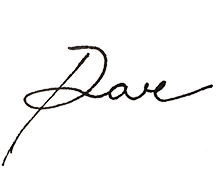If I asked you to put a price on your attention span, how much would you charge me so I could talk to you for one full minute?
Would you charge me $1? $50? Maybe $1,000?
(Hey, why not?)
This is essentially the question that Google, Facebook, Twitter and other online advertising platforms are trying to answer all the time. Search engines and social media networks rake in advertising dollars to slip photos, text ads and more into the online streams where your eyes are looking every day.
But, to them…
Your attention span is usually valued at fractions of a cent — just for the millisecond chance that you will see an ad on a website somewhere.
From authors to yoga teachers, politicians to local plumbing businesses, and coffee shops to major corporations with investors and stock holders, the Internet is humming with absurd amounts of money for a chance to capture your attention for a fraction of a second.
It’s a multi-billion dollar business.
With that much money going around, the commodification of your attention span is certainly not going away anytime soon.
In fact, we can all safely expect more and more intrusion into our attention spans in the coming years. That means more push notifications, more privacy policies to which we agree without ever reading, more and more ads on Instagram (what a wicked bummer), and more deceitful attempts to scrape our private data for others’ nefarious uses.
The simple solution would seem be just deleting social media accounts and opting out of the system altogether.
But the “renunciant monk” approach never really gets us very far.
Me, personally? I don’t want to opt out of society. When I was younger, something about that felt really romantic and appealing. But it’s only because I felt so lost and couldn’t understand how I could ever find my place in the world as I saw it. I felt like saying,
“Damn you, society. I don’t need you. I’ll live in the woods and write poems and then I’ll be free!”
Besides being pitted in resentment, this “shunning the real world” attitude would run completely counter to my values and soul-code. How could I ever honor the most important inner calling I felt (to be a positive source of change and service in the world) if I lived in spite of the world?
Opting out of the system altogether, I’d never be able to do much to make it any better.
Today, I want to propose an even better solution than throwing your Macbook into the sea (please don’t pollute the sea), putting a 4-Wood to your WiFi router (please don’t tee off on your wireless router), or haphazardly deleting your social media accounts (only to realize that you’ll never get to see your second cousin’s cute new baby’s funny-faced pictures ever again).
So what’s the solution?
The solution is to practice valuing your own attention more than they do.
More than Twitter. More than Google AdWords. More than even newsletters like mine that arrive in your inbox.
Your attention span is the most precious “commodity” in your possession. But not because an ad in your Instagram feed wants to sell you a memory-foam body pillow.
Your attention span is so valuable because you only have one of them.
And, your attention span only ever has a limited capacity.
While the technology we use to check the weather or to collaborate with peers who live half a world away will only keep trying to take our attention away from us, it’s our duty to do what we can to value our attention span more than advertisers do.
First, Limit Attention Span Intruders.
The first and simplest approach is to minimize intrusions into your attention — the kind you never choose, but act as if they know what matters right now better than you do. That’s especially easy when it comes to the technology in our pockets every day like your phone.
My phone is only ever on vibrate mode. Ideally you could silence your phone as often as possible (when you’re not expecting to get paged from work, or about potential emergencies from the babysitter).
Go a step further by disabling as many push notifications (those annoying on-screen pop-ups) and, the bane of my existence, sound notifications (including but not limited to dings, whirls, beeps, ka-chings, and even cute R2-D2 greetings).
If your inbox is a nightmare (I recently met someone who had over 42,000 unread emails in her inbox… 42,000!), you might need to resort to technology to save you from technology: Unroll.me is a free tool to help you automatically unsubscribe and opt out of the junk that’s coming into your attention span (that no human has the physical capacity to consume).
Disabling notifications, noises and Inbox distractions is a simple path to reclaiming more attention span.
But the most constructive and long-term approach to valuing your attention more than online advertisers isn’t just to minimize techno-distractions. You also need to add something.
Second, Add Attention-Valuing Practices.
Proactive practices and mindfulness disciplines turn your attention span into a natural asset: attention begins to feel more and more like a gift worth protecting…
— Go slower, breathe deeper, and embody steadier patience.
— Cook more, ideally from scratch. (I’m trying out one of those home food delivery services this week to see if it helps me stay committed to making a wider and more fun variety of dinners at home.)
— Take walks in the park, and try on the Japanese practice of forest-bathing.
— Go to a yoga class, or even pick up heavy things at the gym. Both can be mindful. Both can be attention-honoring. (I myself signed up for the gym for the first time in years this winter to add some variety to my physical wellness practices.
— Journal, especially first thing in the morning, to empty your mind and conscientiously awaken to the day. (If you need them, I have some prompts and creative ideas for you to try here, here, and here).
— Meditate. (At which I am personally, admittedly, terribly undisciplined and have never particularly enjoyed. But since my attention span has felt overcooked lately, I’m committing myself to a 40-day meditation challenge starting this week!)
— Read more. (At which I am, ironically, very slow and undisciplined. But I have picked up new Kindle books from my local library just last week to dive back into a reading rhythm over the spring.)
The more your practice self-discipline with your attention span, the more your attention nourishes you.
Because your attention will be filled with more sources of real and deeply felt fulfillment.
Our attention spans will remain a precious commodity with an ever-increasing dollar value to advertisers — so long as anyone is selling anything to anyone.
So, let’s you and I commit to valuing our own attention spans more and more — prioritizing the human value of minds that are free to process with clarity and intuit the biggest questions of life and its meaning.
Let’s value abundant heart-space, which guides our actions and words in truth and love.
Let’s value what practices and deeds and commitments return us to deep belly breaths, and presence, and feeling ample time and space to Be with one another. Day in, and day out.
I’d say, friend, that the value of those are priceless.
Thanks for reading, and until next time,

P.S. — Like this article? Read it two weeks earlier than you’ve found it here when you sign up for my occasional newsletter.
